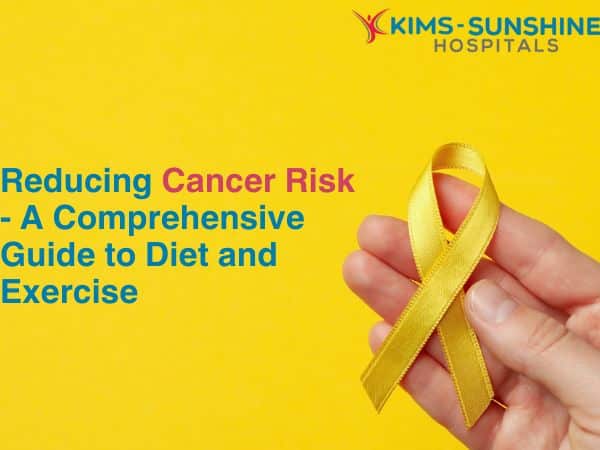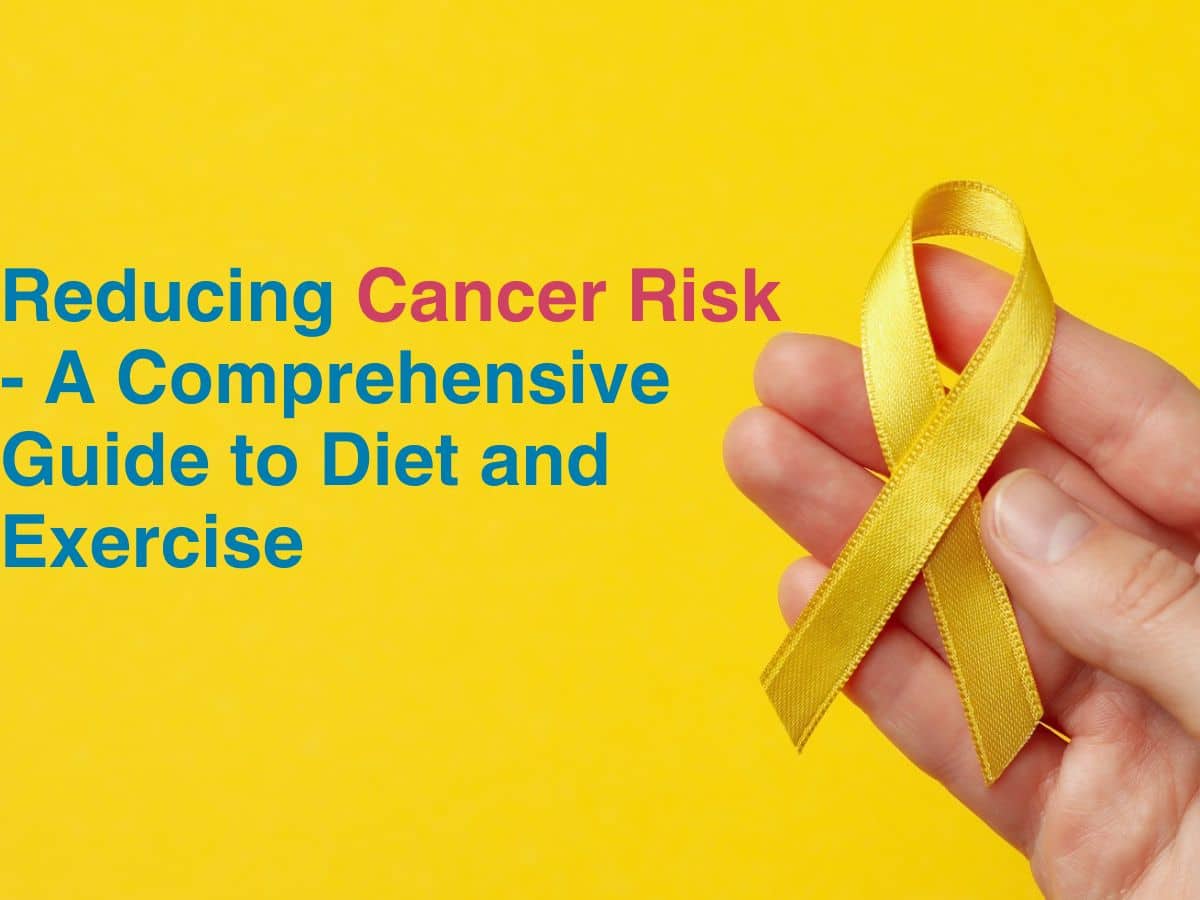
Reducing Cancer Risk – A Comprehensive Guide to Diet and Exercise

Cancer to many feels like a death sentence. But, the truth is, with all the new treatment options available, cancer has become less scary over the decades.
But, that said, cancer still is a leading cause of death worldwide.
But, there are potential ways to prevent it. Several research indicates that diet and exercise can significantly reduce cancer risk.
Prevention is most definitely better than cure, so read on to find out what the top practical tips and evidence-based recommendations are.
Healthy eating habits to lower cancer risk
Food is medicine. No doubt.
- Focus on a balanced diet rich in fruits, vegetables, and whole grains
- Limit red and processed meats
- Choose lean proteins like fish and poultry
- Opt for healthy fats from sources like nuts, seeds, and olive oil
Foods that help prevent cancer:
- Cruciferous vegetables (broccoli, cauliflower, Brussels sprouts)
- Berries (strawberries, blueberries, raspberries)
- Leafy greens (spinach, kale, collard greens)
- Garlic and onions
- Fatty fish rich in omega-3s (salmon, sardines, mackerel)
The role of physical activity in cancer prevention
- Regular exercise can reduce the risk of several cancers
- Aim for at least 150 minutes of moderate-intensity or 75 minutes of vigorous-intensity activity per week
- Combine aerobic exercises with strength training for optimal benefits
Exercise routines to reduce cancer risk:
- Brisk walking or jogging
- Cycling
- Swimming
- High-intensity interval training (HIIT)
- Yoga and Pilates for flexibility and stress reduction
Maintaining a healthy weight to prevent cancer
- Excess body fat increases cancer risk
- Calculate your BMI and aim for a healthy range (18.5-24.9)
- Combine a balanced diet with regular exercise for effective weight management
Impact of alcohol on cancer risk
- Limit alcohol consumption or avoid it altogether
- If you drink, stick to recommended guidelines: up to 1 drink per day for women and up to 2 drinks per day for men
- Be aware that even moderate drinking can increase the risk of certain cancers
Conclusion
Adopting a healthy diet and regular exercise routine can significantly reduce your cancer risk. By making these lifestyle changes, you’re not only protecting yourself against cancer but also improving your overall health and well-being. Remember, it’s never too late to start making positive changes for your health.
Frequently Asked Questions

Dr. Madala Ravikrishna
MBBS, MD, DM (Medical Oncology, TMH, Mumbai)
Consultant Medical & Haemato-oncologist






